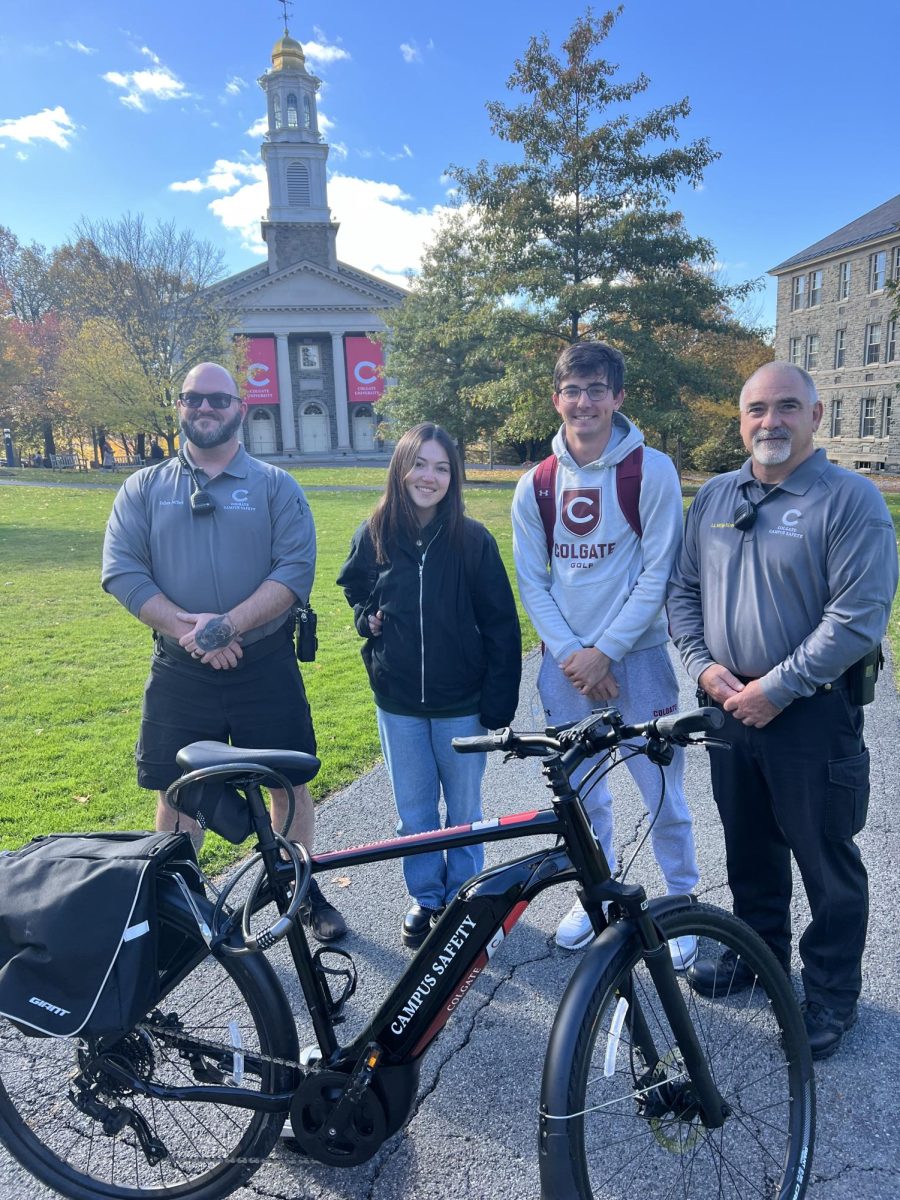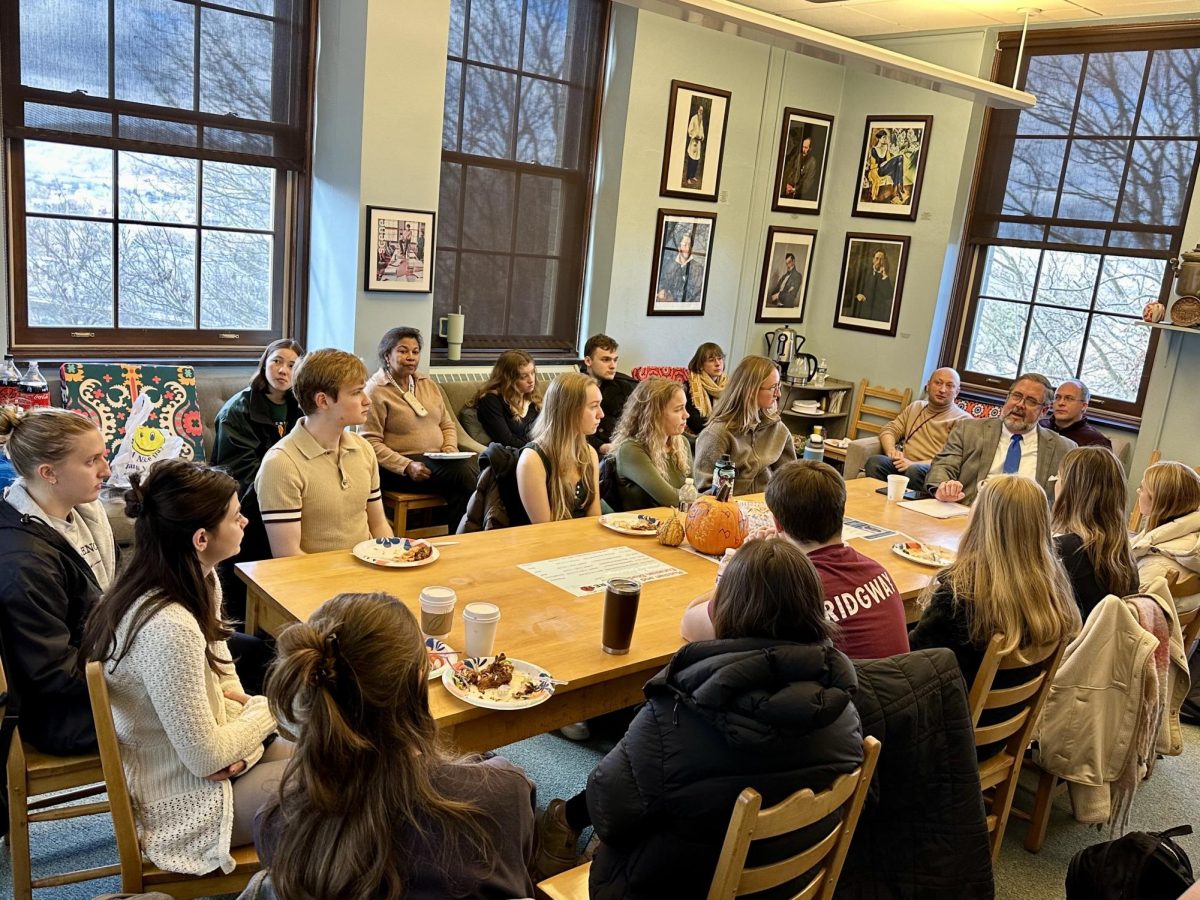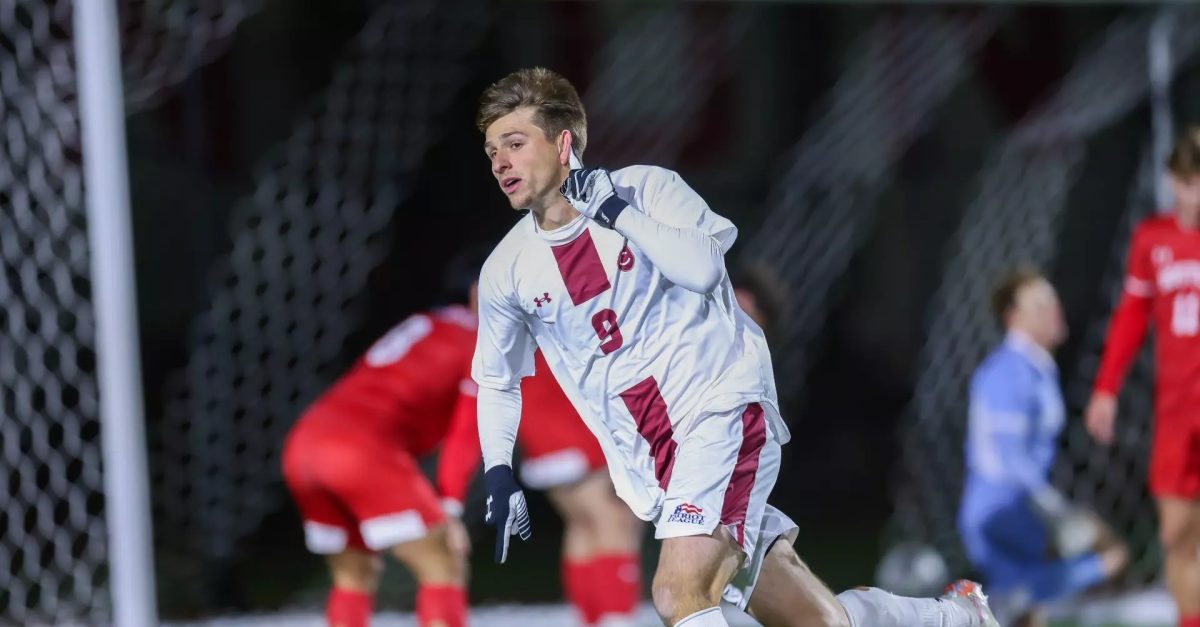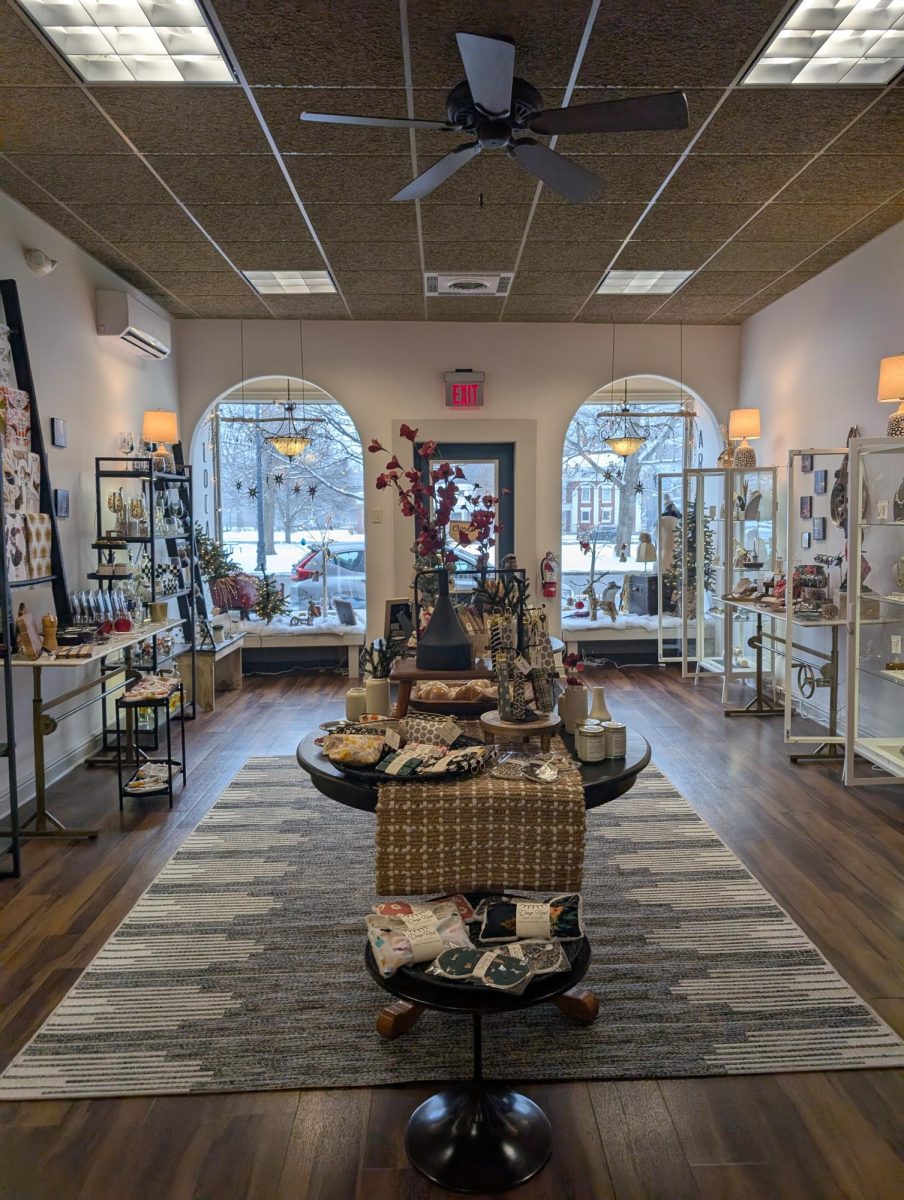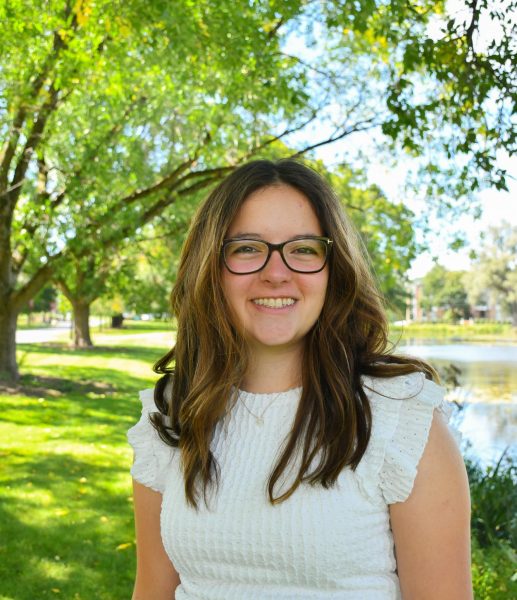Colgate University Campus Safety — referred to as “Campo” by students — made a series of changes this fall to increase its engagement with the student population. This included their transition to “soft uniforms” and adding bike patrols and canines to interact with students easily. Additionally, Campus Safety continued to expand its employee training to create a more culturally competent team.
Before this fall, Campus Safety wore uniforms that closely resembled those of a police officer: pressed shirts with collars and metal badges. Now, they’ve transitioned to a polo. Terri Stewart, the director of Campus Safety, shared that this uniform more closely represents the force’s goals. Campus Safety officers aim to be approachable, as most of their job is service-oriented.
“We are an educational arm of the institution,” Stewart said. “We work hand and glove with other departments across the campus for the safety, security and best interest of students.”
In addition, Campus Safety has expanded its patrol to include bikes, which allow officers to be more approachable than when they are behind the wheel of a marked car. Bike patrols are used most often on the academic and residential quads, as well as for special events. The new bikes provide officers with a wealth of benefits, offering a sustainable mode of transportation, easier accessibility and better physical health.
Vice President and Dean of the College Paul J. McLoughlin commented on the changes made to Campus Safety, highlighting that above all they want to achieve a safe community.
“A change in uniforms that some perceive as more approachable and reflective of Campus Safety’s role on campus, their increased visibility with the use of bicycles and connecting through canines are all part of the ongoing efforts to position Campus Safety to be able to perform their responsibility of partnering with others to help create a safe community,” McLoughlin said.
Officers can also be spotted with their dogs when on patrol. These canines are simply household pets — some officers bring their dogs from home. They are also not police dogs, nor are they emotional support animals. Still, Campus Safety wants students to feel welcome to engage with Campus Safety officers on foot patrol, explaining the officers’ use of dogs.
Stewart shared that Campus Safety aims to build a relationship with students through positive engagement.
“I heard from students when I first got here that the first time — or the only time — they engage with Campus Safety is when there is a situation or unfortunate circumstance,” Stewart said.
Campus Safety reached out to several student organizations last year such as the Student Government Association (SGA), the ALANA Cultural Center and the Student Affairs Board (SAB) to discuss their performance and future goals. Using this feedback, Campus Safety implemented new changes over the summer.
Campus Safety hired a new Associate Director, Bryan Coromato, in January 2023 and a new Assistant Director and Lead Investigator, Sean Dougherty, in February 2023. Simultaneously, Campus Safety hired new officers on the frontline. Stewart mentioned that these internal changes allowed for a natural transition to update the mission, vision and guiding principles of Campus Safety.
Furthermore, Campus Safety officers complete the state-required security guard training and additional training to become more culturally competent. This training is done through classroom lectures and workshops, which include topics such as recognizing trauma, building a supportive community, inclusion in the workplace, preventing harassment and sexual violence, suicide prevention and lifeline resources, managing bias and a series of LGBTQ+ inclusion initiatives.
Director Stewart acknowledged that it’s difficult to perfectly un-train bias.
“The truth is, you can’t train away bias,” Stewart said.“I don’t like to list the training and say that now we are a culturally competent team because we’ve done the training. It’s awareness, and it needs to be ongoing.”
McLoughlin added that much of the work Campus Safety does is unseen to students.
“There are other changes that students probably do not see in terms of working to appropriately recognize them for the demanding job they do. These officers work 24/7, 365 days a year,” McLoughlin said. “They do not get a winter recess or fall break, for instance. The phones are always open and there are always officers on campus working to keep our community and our property safe and secure. […] These updates [students] see are opportunities for Campus Safety to be seen by the community as approachable, supportive and trustworthy.”
First-years and new students are often unaware of the role of Campus Safety in the school community. To combat this, Campus Safety now gives a presentation during orientation.
“That’s the first time you’re meeting us,” Stewart said. “So, you’re learning all of these things. You will know that we are a resource or understand how or when to call us.”
First-year Claire Hulslander spoke about the success of their new initiative.
“I think that Campus Safety is a lot less intimidating than I first thought — their bikes and dogs help with that,” Hulslander said.
Junior Nina Hallberg also noticed the new Campus Safety changes. When asked about how these changes have impacted Campus Safety’s visibility since her first year, Hallberg mentioned her increased interaction with them.
“To some extent, I think they’ve become more visible to me, but I’m not sure if that’s changing practices or because I’ve become more aware as I’ve been on this campus longer,” Hallberg said. “They’re a pretty big part of Greek life, so having been a part of that for three semesters now, I definitely interact with them more than I did my first year.”
Hallberg elaborated on her relationship with Campus Safety over the last three years.
“My relationship is pretty neutral,” Hallberg said. “They’ve taken a few candles from me, but they’ve also given me rides before when it was super cold out. At the end of the day, they’re doing [what they can] to keep us safe, so I can be empathetic to their job and duties.”
McLoughlin expanded on the new relationship that students can expect to foster with Campus Safety.
“Campus Safety is working hard to remain relevant, effective and responsive to changes in the needs of a campus safety team,” McLoughlin. “Students can expect now, and moving forward, that we have officers who genuinely care about their safety and want to be seen by students as a team of people they can turn to if they need help.”
As Campus Safety continues to improve its presence on campus, it aims to expand on changes made this fall. Students who have feedback on Campus Safety’s performance are encouraged to reach out to Stewart or other Campus Safety staff.


